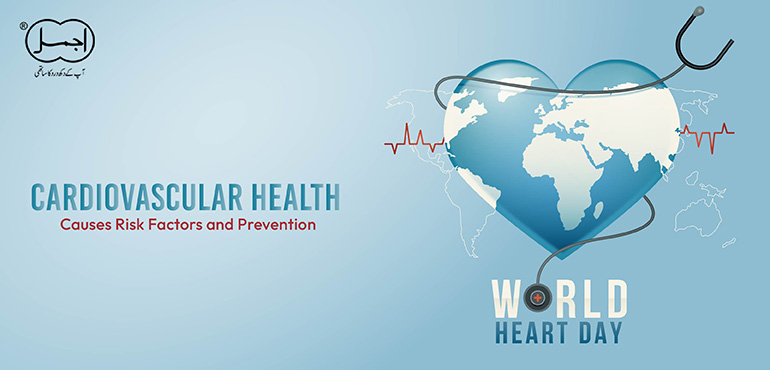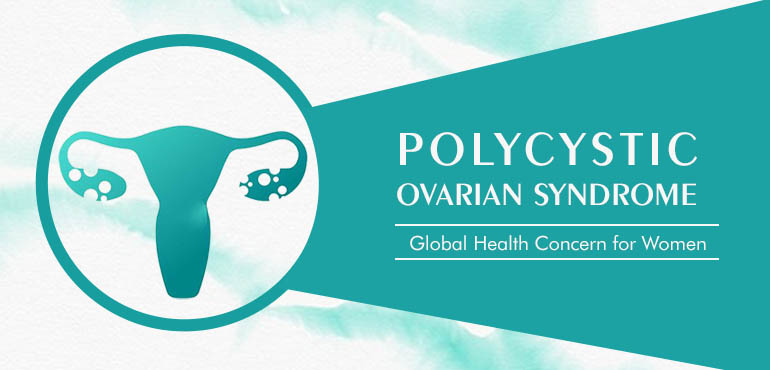Annually on September 29, World Heart Day is observed with the goal of raising public awareness of cardiovascular diseases, including how to prevent them and how they affect people throughout the world. World Heart Day was first introduced in 1999 by the World Heart Federation (WHF) and the World Health Organization (WHO). Antoni Bayés de Luna, the WHF president from 1997 to 1999, was the one who came up with the idea for this annual event.
Cardiovascular Health
Your heart is always working for you, even though you don’t often think about it during the day. Your heart is the most important muscle in your body because it distributes blood and oxygen to all of your organs.
When your heart isn’t given the attention it requires, major issues with the lining of the arteries may arise, which subsequently cause plaque to form. Plaque is the main factor in both heart attacks and arterial blood flow restriction. Recognize the heart issues that can impact you and the behaviors that can help you avoid or manage them. You can keep your ticker in great condition by acting.
Epidemiology
The Cardiac Disease and Stroke Statistical Update is a yearly compilation of epidemiological data on heart disease, stroke, and related risk factors.
The numbers speak for themselves when it comes to cardiac disease in the United States. For males, women, and members of the majority of racial and ethnic groups, heart disease is the second leading cause of death; however, COVID-19 has recently surpassed its in importance. It claims one in four annual lives and one life every 36 seconds.
According to the AHA, there are currently 82.6 million Americans living with one or more kinds of cardiovascular disease (CVD), making it the top cause of mortality for both men and women. Coronary heart disease (CHD), stroke, hypertension, and congestive heart failure are typical forms of cardiovascular disease. Other forms of CVD include rheumatic cardiac disease, peripheral artery disease, atrial and ventricular arrhythmias, congenital cardiovascular abnormalities, deep vein thrombosis, and pulmonary embolism.(Barrett-Connor et al., 2011)
In Pakistan, widespread CAD affects one in every four middle-aged adults. The risks are consistently high for women and young people. A concerted effort is required to stop the cardiovascular disease epidemic in South Asia, with a particular emphasis on hypertension, diabetes, smoking, and dyslipidemia.(Jafar et al., 2005)
Mortality Due to Cardiovascular Disease (Amraaz-e-Qalb)
813,804 people died from cardiovascular illnesses in 2007. Every day, on average, more than 2,200 Americans pass away from cardiovascular disease. In the United States, cardiovascular diseases routinely outrank all other types of cancer as the main cause of death. In 2007, the total death rate (per 100,000) from cardiovascular illnesses was 251.2; the rates for men and women were 300.3 and 211.6, respectively. Americans under 65 died from cardiovascular disease in more than 150,000 cases in 2007, and almost one-third of all cardiovascular fatalities occurred before the age of 75. Deaths from cardiovascular illnesses decreased by 27.8% between 1997 and 2007. Black people continue to have death rates that are significantly higher than those of other racial/ethnic groupings.
According to the most recent WHO statistics on the prevalence of heart attacks in Pakistan, 240,720 persons passed away in Pakistan in 2020 as a result of coronary cardiac disease, making up 16.49 percent of all fatalities. With a death rate of 193.56 per 100,000 inhabitants, Pakistan is ranked #30 in the world.(Barrett-Connor et al., 2011)
Causes and Risk Factors (asbab)
If you have risk factors for cardiovascular disease, such as high blood pressure, you could be at an increased risk (hypertension).
- High triglycerides (hyperlipidemia).
- Use of tobacco (including vaping).
- Diabetes type 2 (ziabetes).
- Heart disease in the family
- Obesity (Saman-e- Mufrat) or being overweight.
- Alcohol abuse and a diet heavy in fat, sodium, and sugar.
- use of illegal or prescription drugs.
- Toxemia or preeclampsia.
- Pregnancy-related diabetes
- Chronic autoimmune or inflammatory diseases.
- A renal disease that is chronic.
- Lack of exercise.
Cardiovascular Diseases (Amraaz-e-Qalb)
Cardiovascular diseases come in a wide variety, including but not restricted to:
- Arrhythmia: Electrical conduction system issues in your heart that may cause irregular heartbeats or heart rates.
- Valve disease: You could have narrowed or leaky heart valves (structures that allow blood to flow from one chamber to another chamber or blood vessel).
- Coronary artery disease (sharyaan ki beemari): Blockages or other issues with the blood arteries in your heart.
- Heart failure: Problems with the heart’s pumping and relaxing mechanisms cause fluid retention and shortness of breath.
- Peripheral artery disease: Any problems, such as narrowing or blockages, with the blood arteries in your arms, legs, or abdominal organs.
- Aortic disease: Ailment of the big blood channel that carries blood from the heart to the brain and the rest of the body, such as dilatation.
- Congenital heart disease: A birth defect in the heart that can damage various heart organs.
- Pericardial illness,which includes pericarditis and pericardial effusion, is a problem with the lining of your heart.
- Cerebrovascular disease: A problem with your brain’s blood arteries, such as constriction or blockages
Deep vein thrombosis (DVT): Blockage in your veins, the blood channels that return blood from your heart to your brain and body
Complications
The cardiovascular illness left untreated might result in life-threatening consequences. Heart attack, stroke, and other cardiovascular diseases may all increase your risk.
- Chronic limb ischemia (sudden blockage in your leg arteries).
- Arterial dissection
- Supraventricular death.
Prevention (Parhez)
Eat Healthy
Eating healthfully can reduce your risk of developing cardiac disease. A heart-healthy diet includes foods low in sodium, sugar, and saturated fat (salt). Find out more about eating well.
High-fiber foods (whole grains, fruits, and vegetables) and certain fats are among the heart-healthy foods (like the fats in olive oil and fish).
Be Active
Regular exercise can aid in preventing cardiac disease. Adults require 150 minutes or more of aerobic exercise at a moderate level each week. This includes activities like walking, dancing, and riding that make your heart beat quicker.
Start slowly if you’re just getting started. Consider scheduling a brief walk into your day. The health advantages of even 5 minutes of exercise are evident, and you can gradually increase your activity levels.
Weight Maintenance
Obese or overweight people are more likely to have cardiac disease, high blood pressure, and type 2 diabetes.
Losing 5 to 10% of your body weight will significantly lessen your risk of cardiac disease if you are obese or overweight. For instance, dropping 10 to 20 pounds if you are 200 pounds would be necessary.
Don’t Smoke
Stopping to use tobacco products, including smokeless tobacco, is one of the finest things you can do for your heart. Avoid secondhand smoke at all costs, even if you don’t smoke.
The heart and blood arteries can be harmed by the chemicals in cigarettes. Because the heart needs to work harder to pump adequate oxygen to the body and brain, smoking causes the blood’s oxygen content to decrease, which raises blood pressure and heart rate.
However, there is good news. Within a day of stopping, the chance of developing cardiac disease begins to decline. The risk of developing cardiac disease is roughly halved after a year of quitting smoking. No matter how much or how long you smoked, the benefits of quitting begin the moment you do.
Get Good Sleeping Habits
Lack of sleep increases the risk of obesity, high blood pressure, heart attacks, diabetes, and depression in individuals.
Adults typically require at least seven hours of sleep per night. Make getting enough sleep a top priority. By going to bed and waking up at the same times every day, you can create and adhere to a sleep routine. Make sure your bedroom is quiet and dark so it’s simpler to fall asleep.
Ask your doctor if you need to be examined for obstructive sleep apnea, a condition that can raise your risk of cardiac disease if you feel like you’ve been getting enough sleep but are still feeling fatigued all day. Obstructive sleep apnea symptoms include loud snoring, brief breathing pauses while you sleep, and gasping for air when you wake up. Losing weight if you are overweight or utilizing a CPAP machine, which maintains your airway open while you sleep, are two possible treatments for obstructive sleep apnea.
Stress Management
Controlling stress can aid in avoiding significant health issues like high blood pressure, depression, and cardiac disease. Meditation and deep breathing are effective stress-reduction techniques.
Health Screenings
The heart and blood arteries can be harmed by excessive blood pressure and high cholesterol. You won’t likely be able to tell if you have these disorders without getting tested for them, though. You can learn your numbers and whether you need to take action through routine screening.
- Blood pressure.Typically, routine blood pressure checks begin in childhood. To check for high blood pressure, a risk factor for cardiac disease and stroke, blood pressure should be taken at least once every two years beginning at the age of 18.
- You will probably undergo screening once a year if you are between the ages of 18 and 39 and have risk factors for high blood pressure. A yearly blood pressure check is also offered to everyone over the age of 40.
- Cholesterol levels.Adults typically have their cholesterol checked every four to six years at the absolute least. A family history of early-onset cardiac disease or other risk factors may necessitate earlier testing than the recommended age of 20 for cholesterol screening.
- Type 2 diabetes screening.Diabetes increases the risk of developing cardiac disease. Your doctor could advise early screening if you have diabetes risk factors, such as being overweight or having a family history of the disease. If not, screening should start at age 45 and should be repeated every three years.
- Your doctor can recommend medicine and lifestyle adjustments if you have a problem like high cholesterol, high blood pressure, or diabetes.
ABCs of Heart Health
The good news is that 80% of premature cardiac disease and strokes are preventable, despite the depressing status of heart disease in the U.S. today. Keep the ABCs in mind to maintain a healthy cardiovascular system for you and your loved ones:
- Aspirin use only when appropriate
- Blood pressure control
- Cholestrol managment
- Smoking cessation
End Note
Heart and blood vessel disorders are referred to as cardiovascular illnesses. Heart illness can cause heart attacks or strokes if not properly treated. For the management of cardiovascular disease, you can alter your lifestyle or take medicine. Effective treatment can benefit from earlier diagnosis. Many people who have cardiovascular disease lead active, fulfilling lives.




